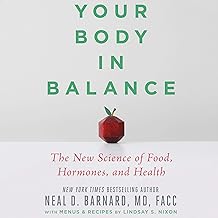Key Takeaways
| Topic | Summary |
|---|---|
| Nutrition and Chronic Conditions | How nutritional choices impact conditions like heart disease and diabetes, based on NHANES data. |
| Heart Health and Diet | Dietary strategies focus on reducing cholesterol through specific diets like Keto. |
| Fat and Potassium | The role these nutrients play in preventing cardiovascular disease. |
| Managing Diabetes | The influence of food choices on glucose levels and overall diabetes management. |
| Chronic Inflammatory and Kidney Diseases | Nutrition approaches that can ease symptoms and manage these conditions. |
| Dietary Trends for Health Conditions | How evolving trends are addressing lactose intolerance and other health issues. |
| Specific Diet Plans | The importance of individualized diet plans in managing various health conditions effectively. |
Have you ever stood in the grocery store’s health food section, bewildered by rows of supplements and so-called ‘superfoods’, and wondered, “What am I supposed to eat to actually feel better?” You’re not alone. With each passing day, it seems a new study emerges to tout the benefits of this nutrient or that, especially when it comes to managing chronic conditions. But let’s unravel this together, shall we?
Understanding the Impact of Nutrition on Chronic Conditions
The intersection of chronic conditions and nutrition is a fascinating, albeit complex one. Recent NHANES data paints a detailed picture of how our dietary habits have evolved over the past two decades, correlating these trends with the prevalence of various chronic diseases. Interestingly, as the kale wave reached its crest, so did public awareness about the links between diet and diseases like obesity, heart disease, and diabetes. But, is munching on leafy greens enough to fend off these ailments?
_Nutrition_for_Specific_Conditions_0.png)
Perhaps no discussion about nutrition for specific conditions is complete without touching on nutritional supplements. Our ultimate guide sheds light on these allies in our quest for health, dissecting which ones are must-haves versus nice-to-haves, especially when dealing with chronic conditions.
Nutritional Supplements in Diets: Your Ultimate Guide for a Healthier Life
Dietary Strategies for Heart Health and Reducing Cholesterol Levels
Ah, the heart. It demands our love and attention, and not just metaphorically speaking. The Keto diet, often hailed as a quick-fix for weight loss, emerges as a knight in shining armor against heart disease, with its potential to manage cholesterol levels. But can bacon really coexist with cardiovascular health?
The Role of Fat and Potassium in Cardiovascular Disease Prevention
It turns out, not all fats deserve the bad rep they often receive. Omega-3 fatty acids, found in fish oil, flax seeds, and walnuts, are like the cool uncles of the fat family—beneficial for your heart and capable of reducing blood pressure. And let’s not forget about potassium, the silent guardian watching over our heart’s rhythm. Have you had your banana today?
The best diet for 15 common health conditions
How Food Choices Influence Glucose Levels and Diabetes Management
Managing diabetes is akin to balancing on a tightrope. One slip—too much sugar here, not enough fiber there—and down you go. The complexity of food’s impact on blood glucose levels can’t be understated, and it’s a topic worth digging into deeper than your spoon in that bowl of oatmeal.
Nutrition Approaches for Chronic Inflammatory and Kidney Diseases
Inflammation is the body’s equivalent of a fire alarm. Chronic inflammatory and kidney diseases are no small issue, and managing them can seem daunting. However, hope is not lost. Specific diets, like the GAPS diet, promise to turn the tide in your favor by healing your gut—one plate at a time.
Dietary Trends and Best Practices for Improving Health in Lactose Intolerance and Other Conditions
Lactose intolerance has been leading the charge in how dietary trends shape around health conditions. As more people embrace dairy-free diets, the ripple effects are fascinating to observe. Are almond milk and coconut yogurt just passing trends, or are they here to stay?
Integrating Specific Diet Plans for Comprehensive Health Benefits
Individualized nutrition is not just a buzzword; it’s a necessity in the maze of managing health conditions. The specific carbohydrate diet, for instance, offers a roadmap for navigating through conditions like IBD and autism with dietary precision. Who knew that what’s on your plate could be your passport to health?
Related Articles
- Supplements and Immune System: Boost Your Defense Naturally
- Losing Weight for Specific Ages: Tailored Strategies for Every Decade
- What Should I Eat for My Specific Condition?
- Nutrition for Specific Medical Conditions
- When it comes to nutrition and chronic disease, focus on the basics
Navigating the complex world of nutrition for specific conditions can feel like a Herculean task. Yet, by arming ourselves with knowledge and embracing the power of personalization in our diets, we can make strides toward better health. Remember, nutrition is not a one-size-fits-all deal. What resonates with you from today’s exploration? Are you ready to tread the path of nutritional wellness catered to your unique health journey?
Frequently Asked Questions
Q: What role does nutrition play in managing chronic diseases?
A: Nutrition plays a crucial role in managing chronic diseases by helping to control symptoms, prevent complications, and improve overall health outcomes.
Q: How does diet impact overall health and well-being?
A: Diet plays a significant role in overall health and well-being as it provides essential nutrients that support various bodily functions and promote good health.
Q: What are the dietary guidelines for Americans and why are they important?
A: The dietary guidelines for Americans provide recommendations for healthy eating patterns to promote overall health, prevent chronic diseases, and reduce the risk of nutrient deficiencies.
Q: How can a balanced diet contribute to optimal health?
A: A balanced diet that includes a variety of foods from all food groups provides essential nutrients that support optimal health, energy levels, and overall well-being.
Q: What is the Mediterranean diet and how does it benefit health?
A: The Mediterranean diet is a dietary pattern rich in fruits, vegetables, whole grains, and healthy fats that has been associated with numerous health benefits, including improved heart health and reduced risk of chronic diseases.
Q: How do dietary factors affect bone health?
A: Dietary factors such as consuming adequate calcium, vitamin D, and magnesium are essential for maintaining bone health and reducing the risk of osteoporosis and fractures.
Q: What is the DASH diet and why is it recommended for optimal health?
A: The DASH diet is a dietary approach to stop hypertension that emphasizes fruits, vegetables, whole grains, and low-fat dairy products, which can help lower blood pressure and promote heart health.








